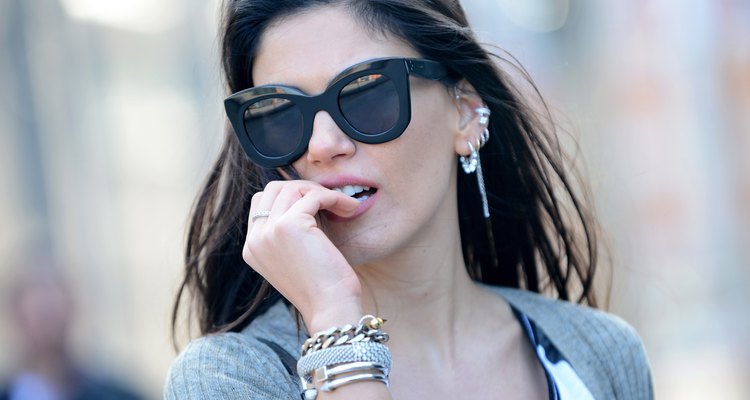
Levent Kulu/Getty Images Entertainment/Getty Images
After piercing your cartilage, or the upper area of the ear, it’s important to take special care to avoid infection. Cartilage piercings are more prone to infection than regular earlobe piercings, asserts WebMD, so it’s important to take extra precautions. A piercing is normally swollen, tender and red for a few weeks or months afterwards, but if it becomes hot, excessively red, or emits an odor or dark discharge, it may be infected. Infections need to be treated by a doctor, but you can take steps at home to make sure they don’t happen, such as keeping the piercing clean, avoiding germs and bacteria, and maintaining a healthy lifestyle.
What to Use
The main goal of cleaning a cartilage piercing is to get rid of dirt, dust or other fragments that may accumulate in or around the piercing. You do not need to disinfect or sterilize the piercing to help it heal faster or to reduce redness and swelling. Under no circumstances should you use cleaning solutions like rubbing alcohol, iodine, hydrogen peroxide or antibacterial cream. Your body will do most of the healing on its own. To clean a cartilage piercing, use a sterile saline wound-wash solution. You can also make your own saline solution by adding 1/8 to 1/4 teaspoon of non-iodized sea salt to 8 ounces of distilled water. However, if you’re going to make your own, it’s important to mix a new batch every day.
Cleaning the Piercing
The first step in the cleaning process is washing your hands thoroughly with antibacterial soap. Next, spray or pour a little bit of saline solution directly onto the cartilage piercing. Pour some solution on a clean cotton swab or cotton cleaning pad and carefully clean the more difficult-to-reach areas surrounding the piercing, such as the inner fold of the ear. Do not clean your cartilage piercing more than a few times a day, as this can cause irritation or infection. Never pick off crusts, scabs or debris with your fingers. Crust is a natural part of the healing process, and picking at it will only irritate the piercing.
Keeping a Clean Environment
Infections are caused by germs and bacteria that get into your piercing, so you’ll need to be especially careful to keep clear of potentially harmful environments. The most important and most difficult thing you’ll need to do is avoid touching the piercing, or letting other people touch it, until it is completely healed. Hands and fingers have millions of germs and bacteria, and you want to keep them far away from your cartilage. Try to keep your piercing away from sitting water for the first two weeks, including rivers, lakes, pools and even bathtubs, as these may contain a lot of foreign bacteria. Take special care with the things that come in direct contact with your cartilage, such as bedding. Put clean sheets and pillows on your bed and change them every couple of days. Avoid sleeping on your cartilage piercing, if possible.
Maintaining a Healthy Lifestyle
A piercing is essentially a wound that your body has to try to heal, so maintaining a healthy immune system is critical. One of the best things you can do for your piercing is keep your body physically fit. Especially for the first few weeks after the piercing, get at least eight hours of sleep each night and eat balanced, nutritional meals. Try to avoid smoking or being in smoky areas, as this could irritate the piercing. Avoid consuming alcohol and drink plenty of water to flush any toxins out of your body. The healthier you are, the better and faster your piercing will heal.
Related Articles

How to Drain a Cheek Piercing

Homemade Recipe to Disinfect a Piercing
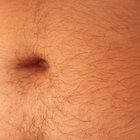
How to Get Rid of Belly Button Odor

Care for Pierced Ears with Isopropyl ...
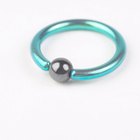
How to Clean Your New (Conch) Ear ...

How Long Do You Keep Your Earrings in ...

How to Take Care of an Eyebrow Piercing
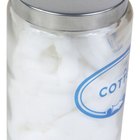
How to Care for a Rook Piercing

How to Remove Starter Earrings for ...
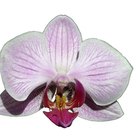
How to Get a Guiche Piercing

How to Clean Smiley Piercings

How to Get Rid of a Tattoo Scab

The Effects of Poor Personal Hygiene

How to Get Rid of a Piercing That Won't ...

How to Get Rid of a Bump on Your Nose ...

How to Put Earrings in Your Ears Fast

How to Get Clear Skin in 5 Days
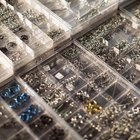
Complications of Nipple Piercing
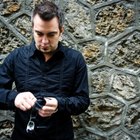
How to Sterilize Eyeglasses

How to Soothe an Irritated Piercing
References
Writer Bio
Marie Gentile has a passion for personal finance and style, and takes a special interest in the places where they intersect. She specializes in writing about money management and frugal living. Gentile has a bachelor's degree in journalism and has been published in several personal finance-related print and online publications.
Photo Credits
Levent Kulu/Getty Images Entertainment/Getty Images